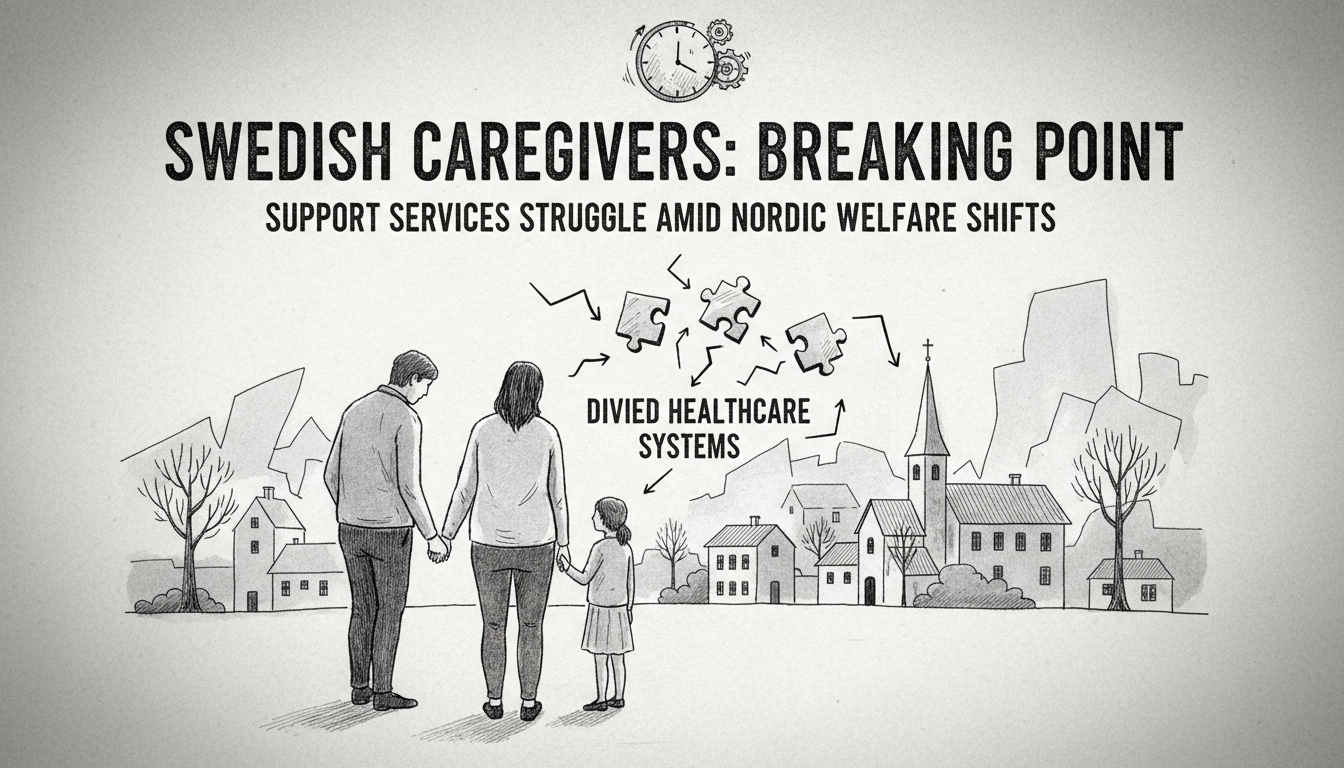Ann-Catrin Nyberg supports relatives of people with mental illness or disabilities through Luleå Municipality's family support program. She encounters growing numbers of caregivers pushed to their absolute limits. Many families contact support services at the last possible moment, she explains. Early intervention makes a crucial difference in these situations.
Support workers help reduce the caregiver's burden through conversation and practical assistance. Research confirms that talking provides substantial relief. Caregivers appreciate sharing their struggles with someone who listens without judgment. Families can choose between home visits, clinic appointments, group meetings with other relatives, or remote support by phone and email.
Most families prefer home visits because they feel safest in their own environment. Group sessions offer different benefits through shared experiences and reduced isolation. The situation becomes particularly complex when supporting someone with dual diagnoses involving both mental health issues and substance abuse. These cases require staff expertise across multiple domains.
Mental health support differs dramatically from physical injury recovery. A doctor cannot simply prescribe a six-week healing plan as with a broken bone. Many caregivers feel exposed and uncertain about responsibility when their loved ones suffer. Individuals often fall between institutional cracks when dependent on both regional healthcare and municipal social services.
Sweden's healthcare system divides responsibility between regional authorities handling medical care and municipalities providing social support. This division frequently creates coordination gaps that vulnerable individuals slip through. The Nordic welfare model traditionally provides strong social safety nets, but increasing demands test these systems.
Luleå represents a typical northern Swedish municipality facing both geographic isolation and growing mental health challenges. Sweden has seen rising mental health issues among young adults and increased substance abuse problems nationwide. These trends place additional pressure on family members who become informal caregivers.
International readers should understand that Swedish municipalities bear primary responsibility for disability services and social support, while regions manage healthcare. This separation sometimes creates bureaucratic obstacles for families navigating both systems. The situation reflects broader challenges in Nordic welfare states adapting to changing demographic and health needs.
What does this mean for families struggling with similar issues across the Nordics? Municipal support services exist but require proactive engagement. Waiting until crisis point reduces intervention effectiveness. Other Nordic countries face comparable challenges balancing regional healthcare and municipal social care responsibilities.
The growing caregiver crisis signals deeper structural issues in Nordic welfare systems. As populations age and mental health needs increase, family members increasingly fill gaps in formal support systems. This trend affects workforce participation and overall family wellbeing across the region.

